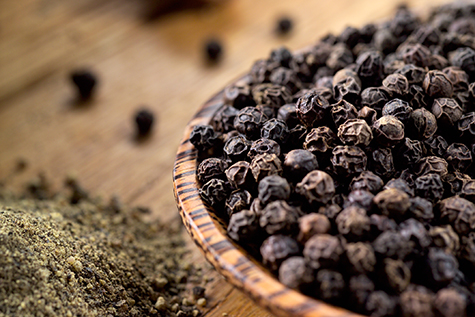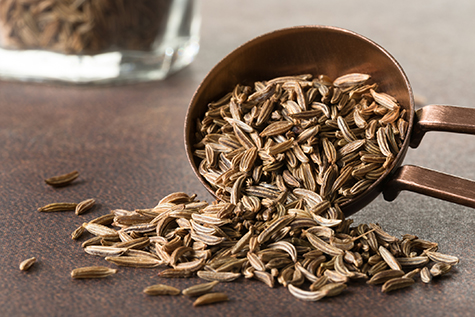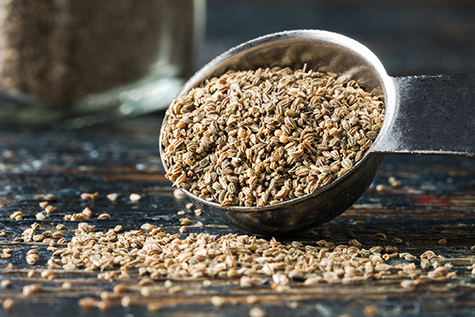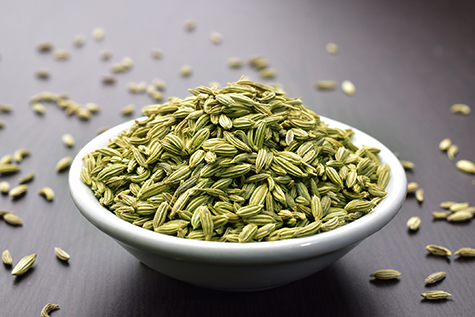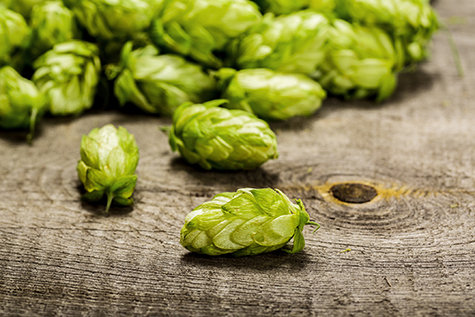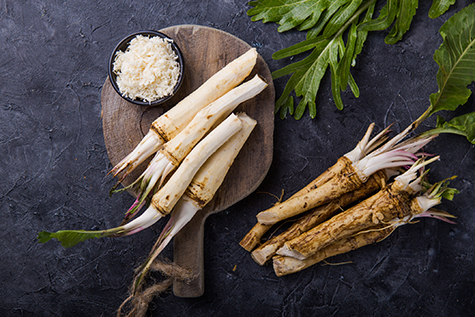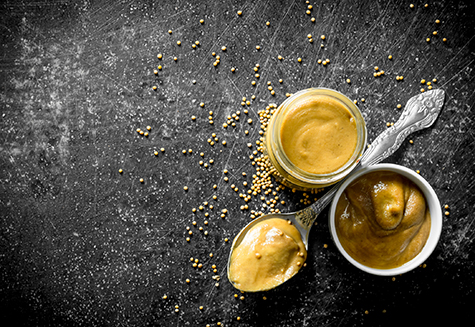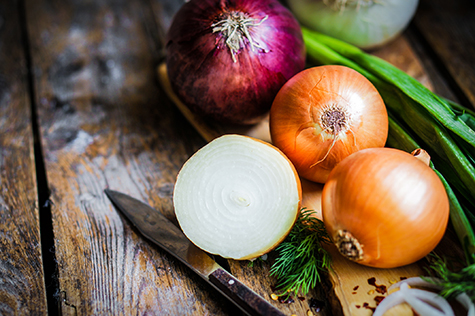German Spices Are Different and Diverse

Over the past year, FoodTrients has been exploring foods and flavors from around the globe. This week, we introduce another in our series on the world of herbs, spices and ingredients that help create some of the distinctive dishes we have featured and the age-defying benefits they deliver.
The cuisine in Germany is different than any other culture yet shares roots with many given the diversity of the region. Broken up into a number of regional cuisines based on topography and history, food preservation such as fermentation, salting, smoking, and pickling is popular in Germany. A traditionally meat-heavy culture, herbs and spices that go well with pork are common seasonings. Here are some of Germany’s top spices:
Black Pepper
Spicy black peppercorns are used medicinally for many reasons including decreasing pain from headaches to arthritis and easing digestive troubles. Used around the world for culinary reasons, in German cuisine, pepper is added to nearly any dish that is seasoned with salt so you’ll find it in a wide variety of meats, stews and sauces.
Caraway Seeds
If you’ve got an upset stomach, caraway could help you feel better right away and is even used to help alleviate irritable bowel syndrome (IBS). Known as kümmel in Germany, caraway seeds are commonly used on sautéed potatoes, in bread and to flavor soups, chicken and other meat dishes. These little seeds have a peppery anise flavor.
Celery Seed
Used to calm inflammation from arthritis and to help balance blood sugars in traditional medicine, there are a lot of ways to use celery seeds in the kitchen as well. If you’re eating pickles in Germany, you’ll likely be eating ground celery seeds. They’re commonly used to season fermented foods including cabbage and are also used in traditional slaw and salad dressings.
Fennel Seed
Yet another anise-flavored herb, fennel seed has many uses both in the kitchen and in natural medicine. It is used to boost lactation and help with hormonal balance in women as well as to soothe the respiratory, digestive, and urinary systems. In Germany, it is used both in bulb form, raw, in salads, as well as roasted or in gratin dishes and in seed form for seasoning many dishes. The bulb, fronds and seeds can also be blended into root vegetable soup for an added, mild licorice flavor or used to season potato salads.
Hops
Used medicinally to calm anxiety and tension, stimulate the appetite and help with and insomnia, hops have a long history of use to improve health. However, they’re best known for brewing beer and that’s a hallmark of German cuisine. Famous for their brewing techniques, Germany produces a third of the world’s beer varieties and not only is it an important part of the culture, it pairs well with many salty and rich foods.
Horseradish
This spicy root is part of the cruciferous vegetable family (think broccoli, cauliflower, and Brussels sprouts) which are types of veggies that have some potent anti-cancer properties due to the sulfuric compounds they contain. In the kitchen, horseradish is commonly used to add flavor, heat, and spice to sauces that go on meat and fish. It is sometimes used as a garnish on meat.
Juniper Berries
Used medicinally, especially as a diuretic and anti-diabetic agent, Juniper is also used as a common culinary condiment or a flavor component in gin and in bitter cocktail preparations. In German food, they are used whole (mashed) or ground in sauerkraut (fermented cabbage) and in pickling because of their complex flavor profile.
Mustard
The seeds and leaves of the mustard plant are used to prevent infections, treat cold and flu symptoms and to stimulate the appetite in traditional medicine. In German cuisine, mustard seeds are used both whole, often in marinades, as well as ground, often mixed with vinegar, oil, other herbs and sugar. You’ll see it on a menu as senf or mostrich. Because it’s such an important flavor in German cuisine, you’ll see several different types of mustard used including sweet, medium-spicy, and hot-spicy. These are used on meat and in salad dressings, sauces, and marinades.
Onion
Part of the powerful allium family, known for their anti-inflammatory, anti-microbial and anti-cancer potential, onions have been used medicinally around the world especially for treating inflammatory conditions and colds/flu or other respiratory problems. Traditional German recipes include onion gravy, onion sauce and even savory onion pie which pairs well with other herbs on this list including caraway.
References
Natural Medicines Database. Hops. https://naturalmedicines.therapeuticresearch.com/databases/food,-herbs-supplements/professional.aspx?productid=856. Updated 6/1/2018. Accessed 1/20/21.
Natural Medicines Database. Black Pepper. https://naturalmedicines.therapeuticresearch.com/databases/food,-herbs-supplements/professional.aspx?productid=800. Updated 8/27/20. Accessed 11/21/20.
Natural Medicines Database. Fennel. https://naturalmedicines.therapeuticresearch.com/databases/food,-herbs-supplements/professional.aspx?productid=311. Updated 10/21/20. Accessed 12/21/20.
Natural Medicines Database. Onion. https://naturalmedicines.therapeuticresearch.com/databases/food,-herbs-supplements/professional.aspx?productid=643. Updated 3/3/20. Accessed 11/21/20.
Royston KJ, Tollefsbol TO. The epigenetic impact of cruciferous vegetables on cancer prevention. Current pharmacology reports. 2015;1(1):46-51.
The Spruce Eats. German Cuisine. https://www.thespruceeats.com/introduction-to-germany. Updated 8/6/20. Accessed 11/22/20.
Natural Medicines Database. Juniper. https://naturalmedicines.therapeuticresearch.com/databases/food,-herbs-supplements/professional.aspx?productid=724. Updated 12/30/2015. Accessed 1/20/21.
German Food Guide. http://www.germanfoodguide.com/cooking-herbs.cfm. Accessed 11/22/20.

